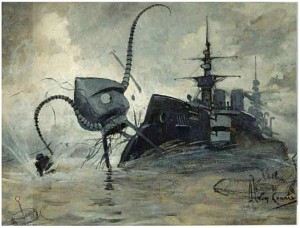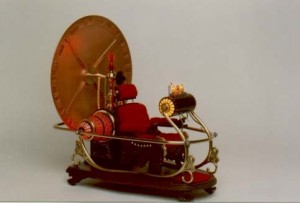“Science Fiction is the branch of literature that deals with the effects of change on people in the real world as it can be projected into the past, future, or to distant places. It often concerns itself with scientific or technological change, and it usually involves matters whose importance is greater than the individual or the community; often civilization or the race itself is in danger” (2). Gunn, James. The Road to Science Fiction, From Gilgamesh to Wells. vol. 1. New York: New American Library, 1977.
“Science Fiction is that class of prose narrative treating of a situation that could not arise in the world we know, but which is hypothesised on the basis of some innovation in science or technology, or pseudo-science or pseudo-technology, whether human or extra-terrestrial in origin” (18). Amis, Kingsley. New Maps of Hell: A Survey of Science Fiction. New York: Harcourt Brace, 1960.
“SF, then, is a literary genre or verbal construct whose necessary and sufficient conditions are the presence and interaction of estrangement and cognition, and whose main formal device is an imaginative framework alternative to the author’s empirical environment” (7-8). Suvin, Darko. Metamorphoses of Science Fiction: On the Poetics and History of a Literary Genre. New Haven: Yale University Press, 1979.
“SF is distinguished by the narrative dominance or hegemony of a fictional ‘novum’ (novelty, innovation) validated by cognitive logic” (67). Suvin, Darko. Defined by a Hollow: Essays on Utopia, Science Fiction and Political Epistemology. Bern: Pater Lang, 2010.

